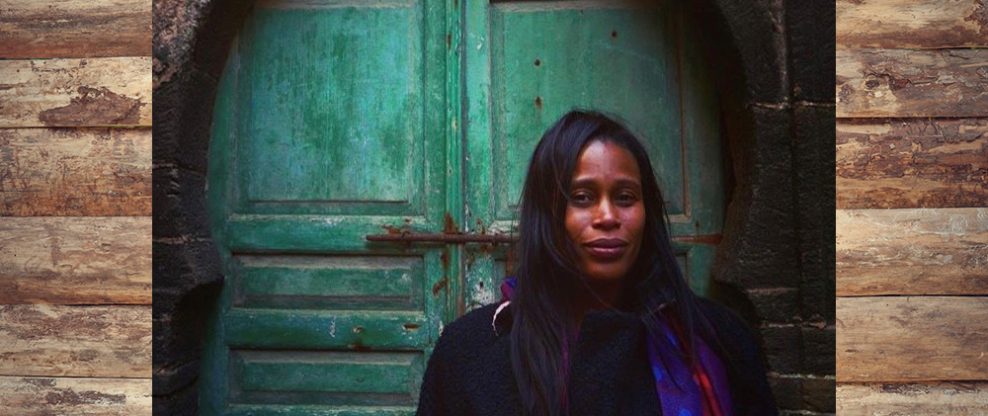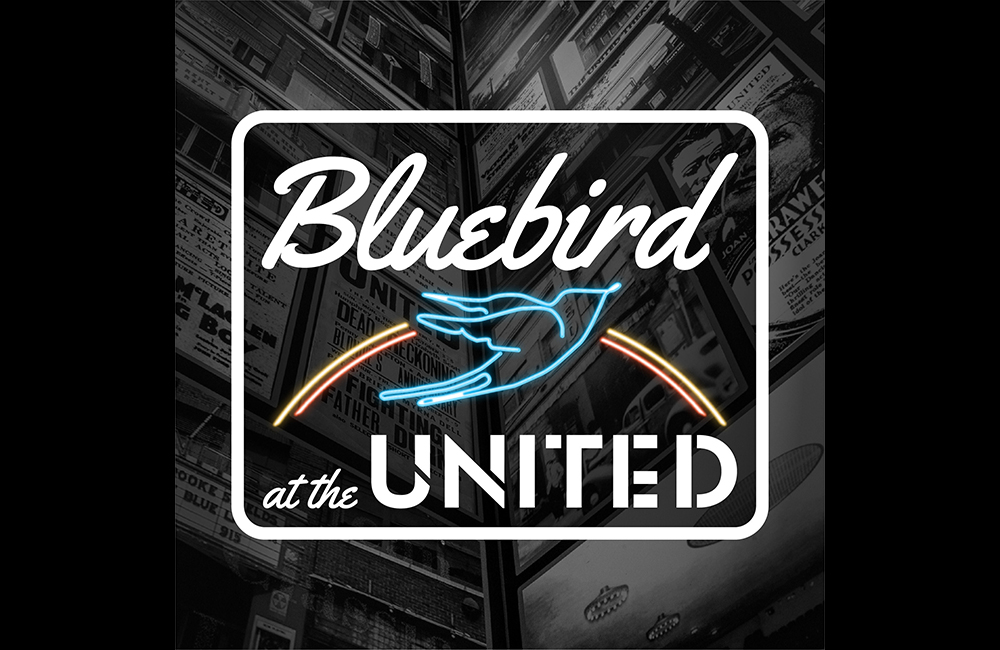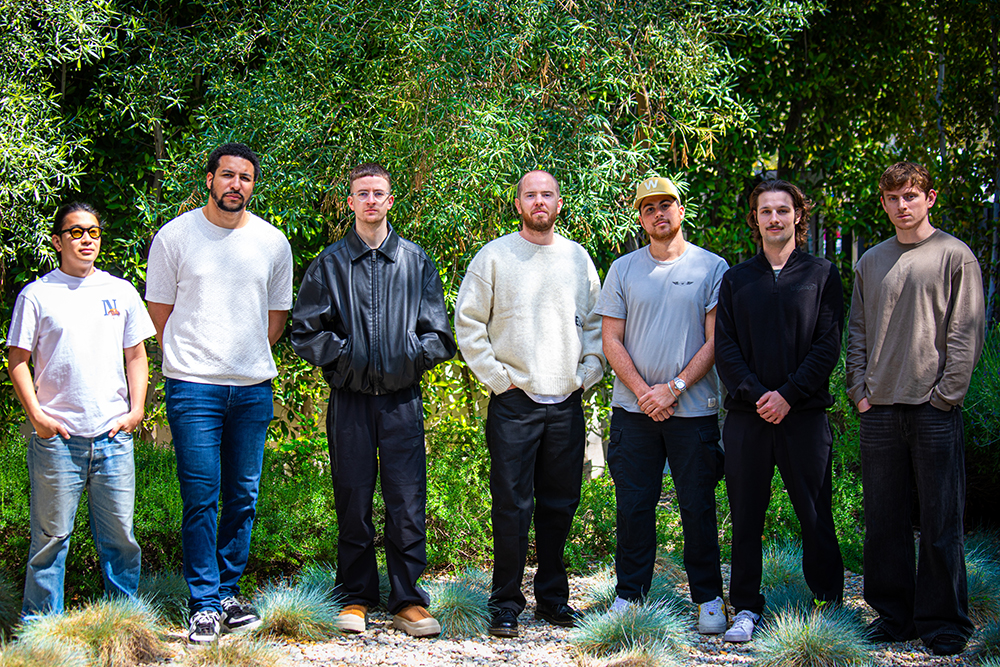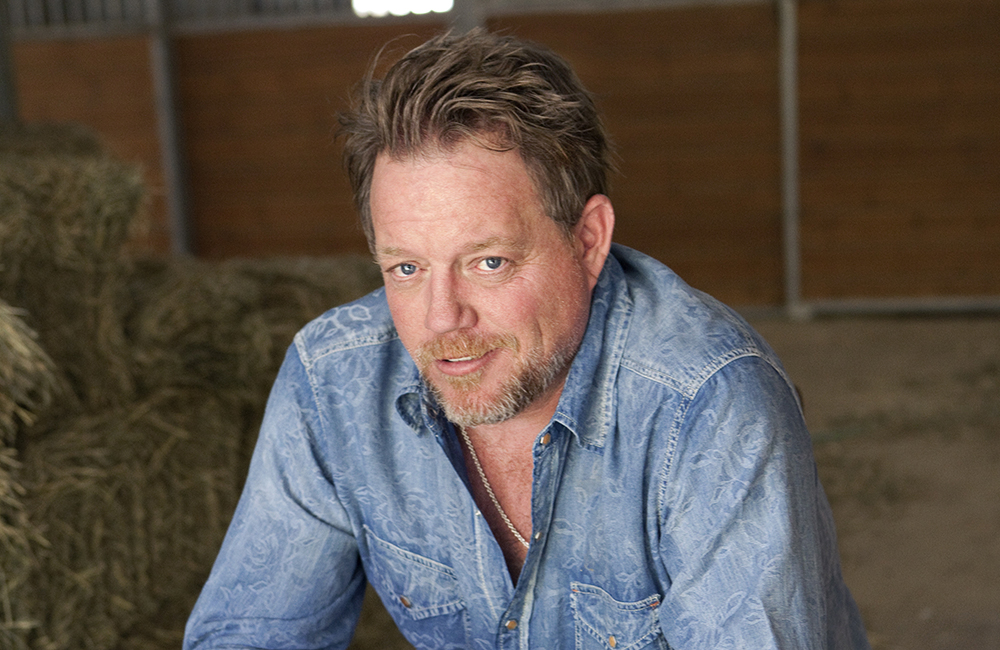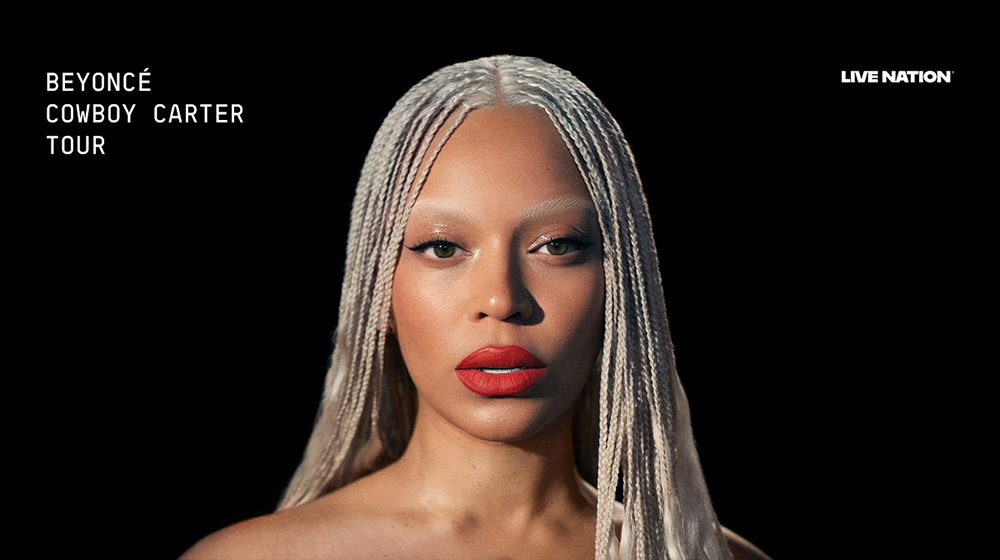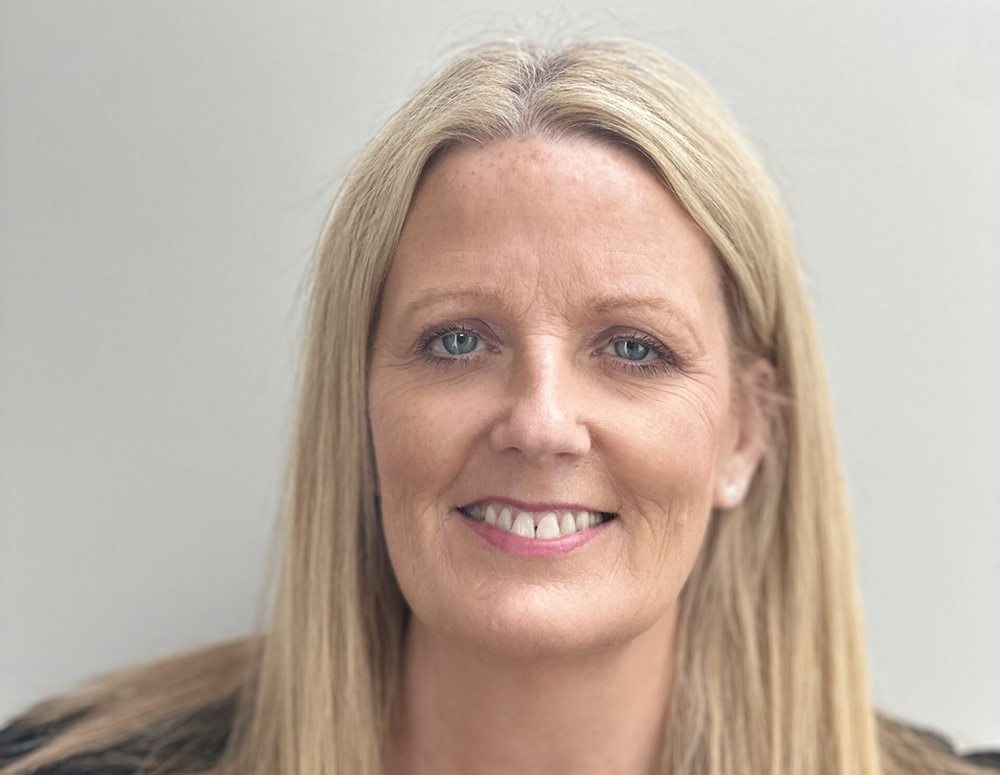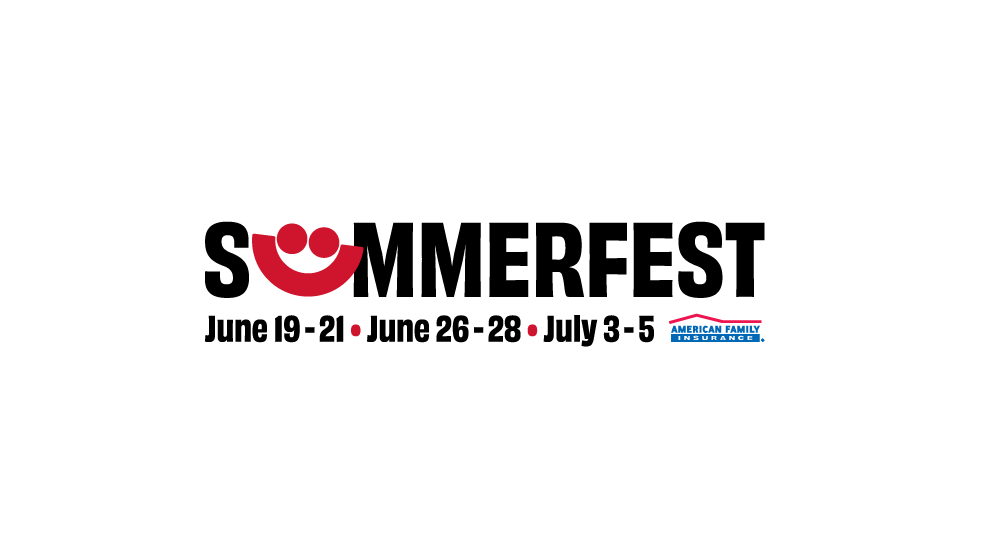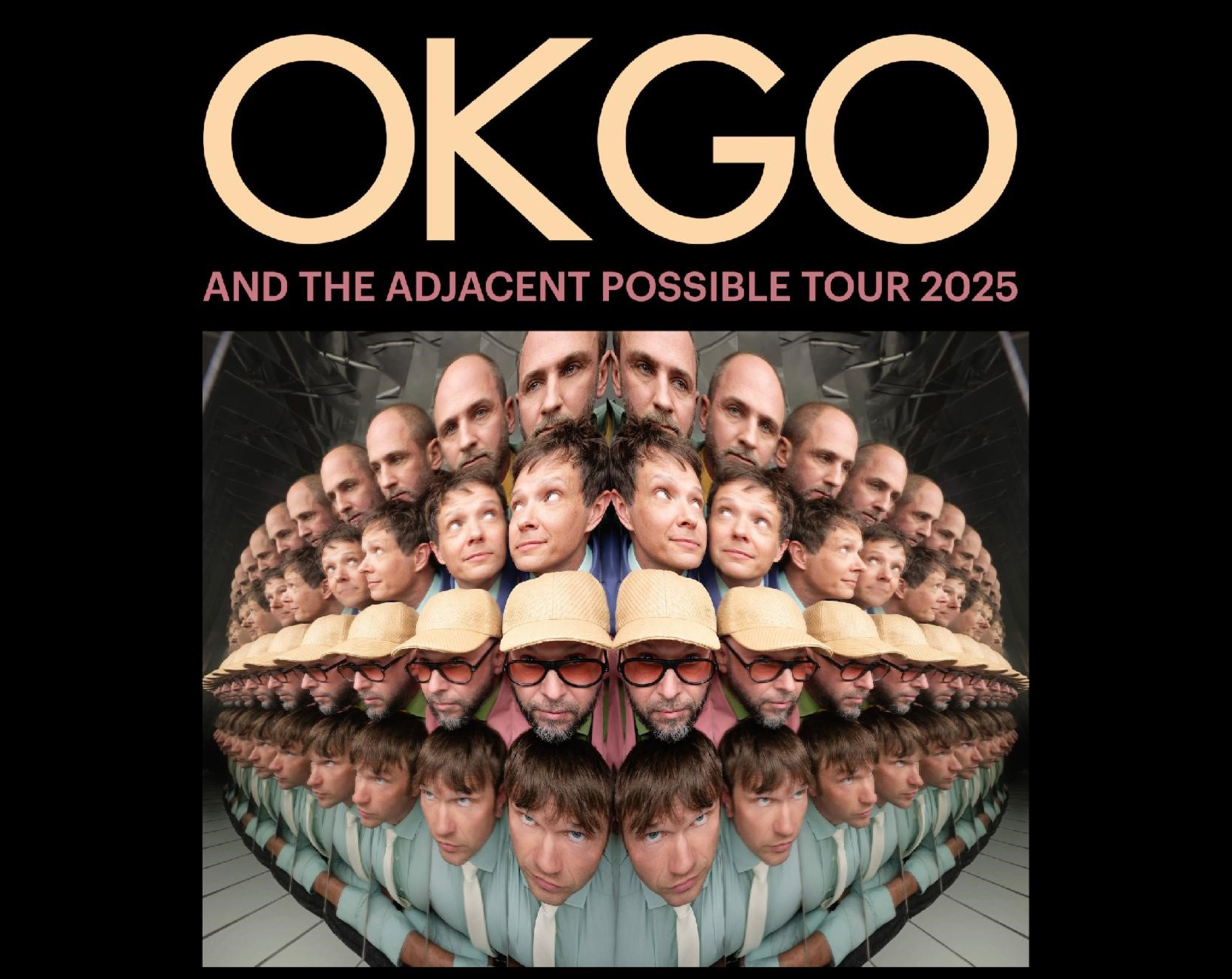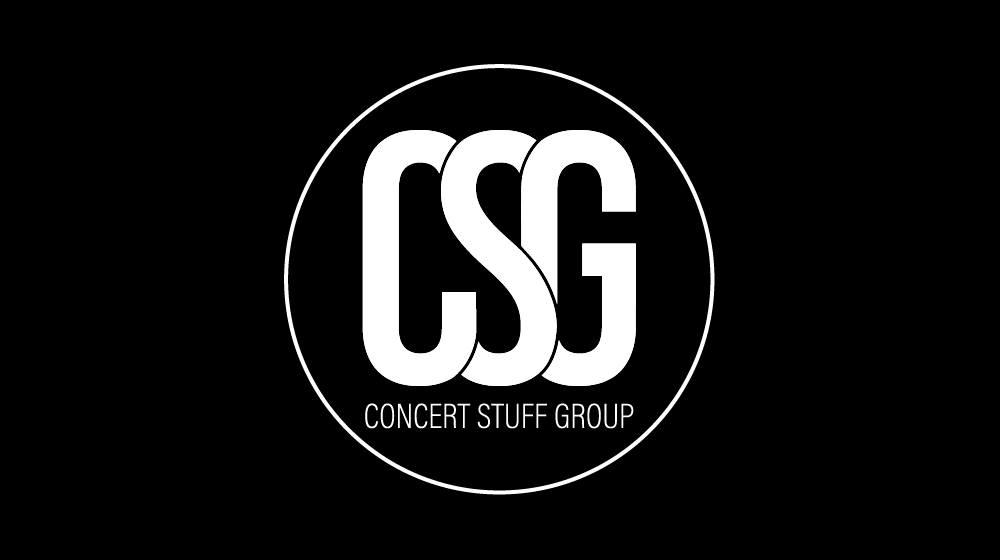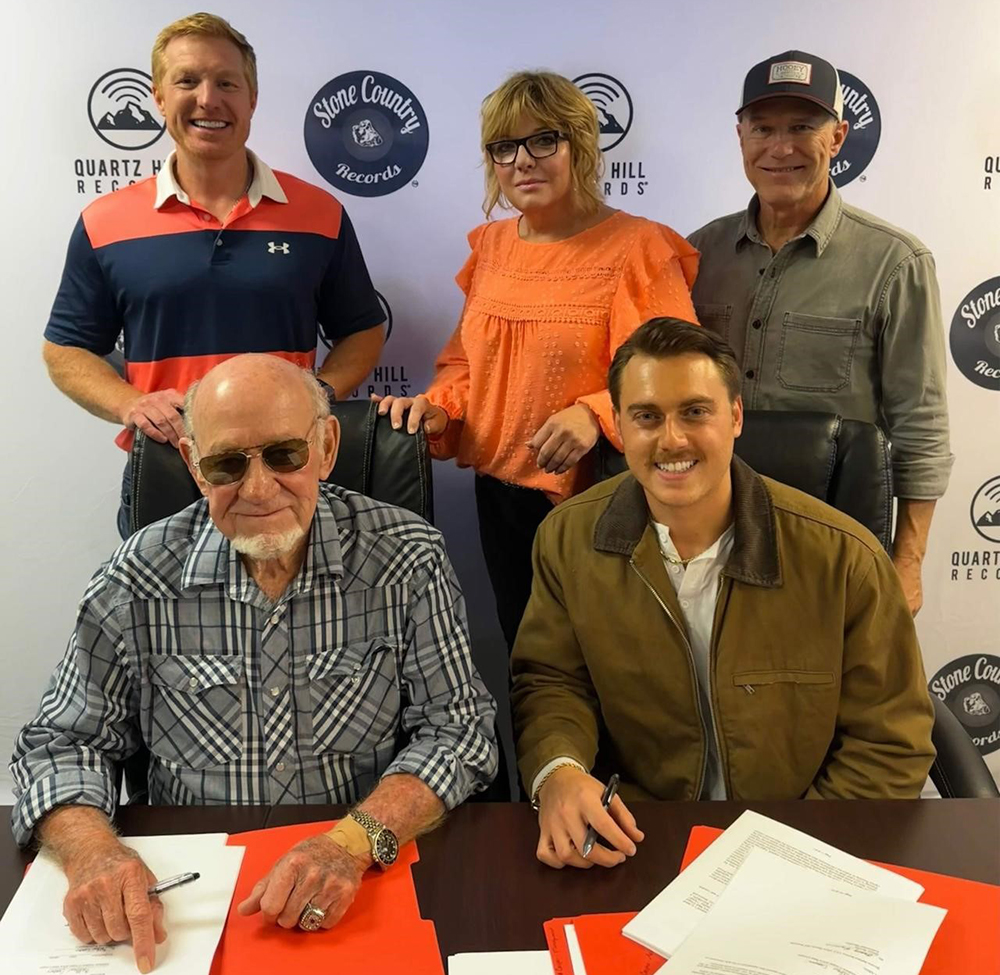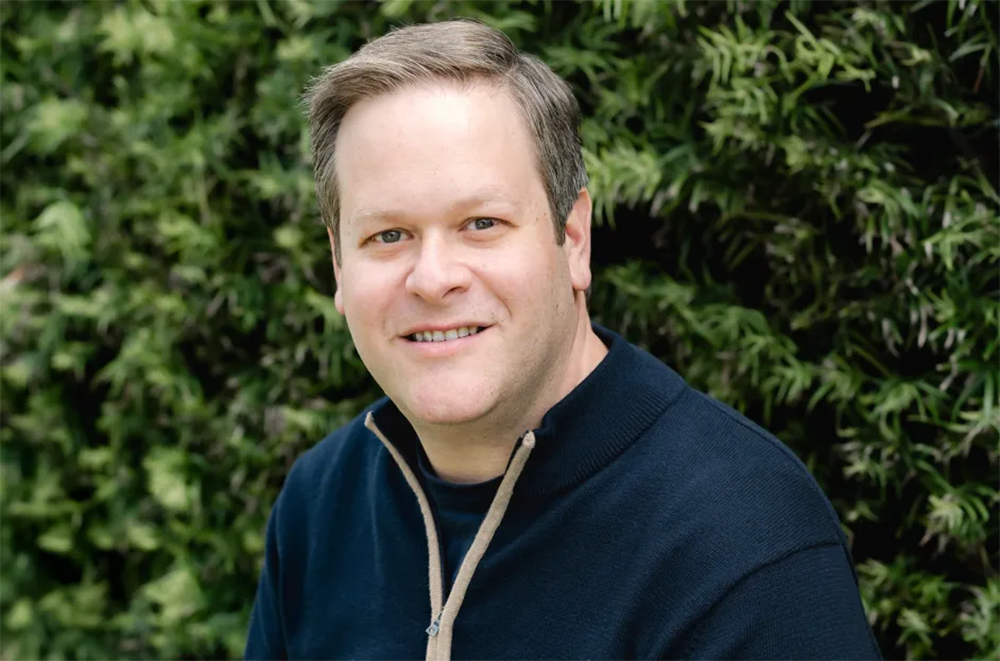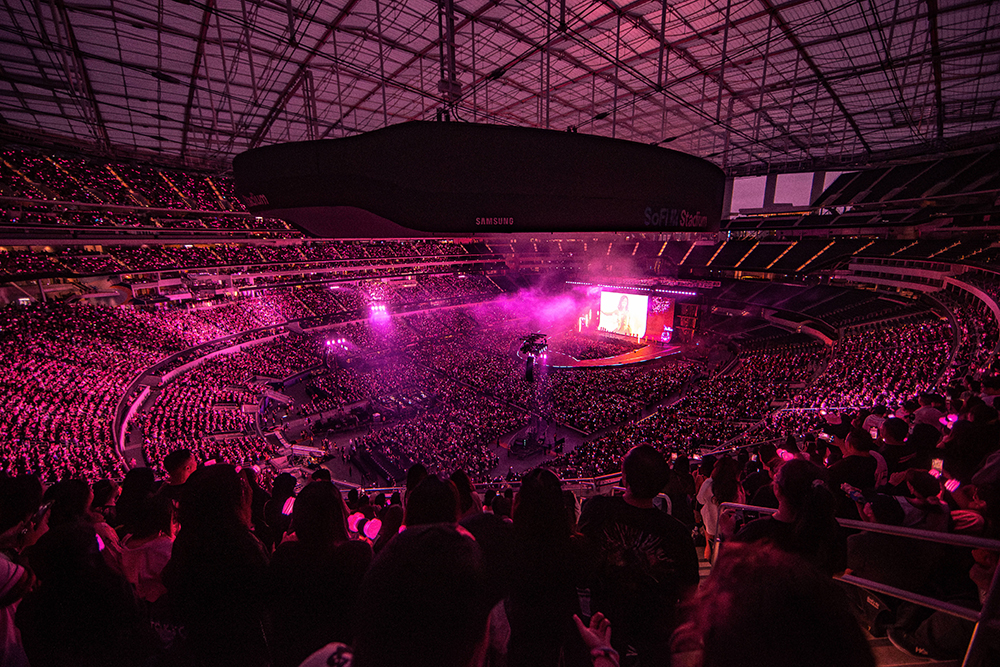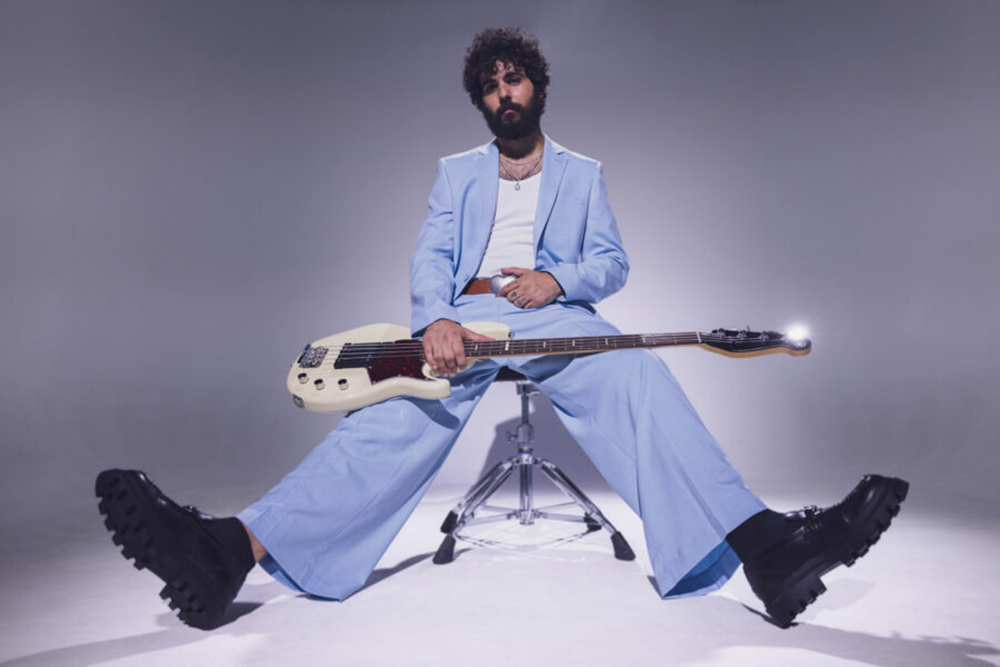This week In the Hot Seat with Larry LeBlanc: Tina Farris, owner, Tina Farris Tours.
When Tina Farris was drafted to tour manage her friends, the Roots, she really didn’t know what a tour manager was.
Farris, then a student at UCLA and working as a supplemental French school teacher, had forged a friendship with the Philly group and would make it to their shows when she could. Nearly 8 years later, she was brought into their inner circle when one of the tour managers left.
Farris, who grew up around musicians, and is a bass player herself—with a B.A. in sociology from UCLA, and an M.A. in clinical psychology from Antioch University Los Angeles–wound up perfectly suited for a career as a traveling music tour manager, and production manager
Today, with nearly two decades of counseling and corralling artists; holding down budgets; problem-solving ever-changing logistics; helping to design and execute shows; and keeping up with ticket sales daily, Tina Farris has a valued live music reputation.
A reputation of being The Fixer.
Farris views her tour management role–whether working clubs, arenas, stadiums in North America or overseas; and whether being involved in such high-profile events as the Super Bowl, the World Cup, the NBA All-Star Game–as a creative collaboration with her clients to execute their artistic vision.
Also, to get them into and out of events drama free.
Still working with the Roots two decades later—including co-producing their annual Picnic in Philly, and their annual Jam Session during Grammy week in Los Angeles –her clients have included: Lil Wayne, the Black Eyed Peas, Chris Rock, Queen Latifah, Fergie, D’Angelo, Maxwell, Lauryn Hill, Mary Mary, Solange, Estelle, Jill Scott, Maxwell, Macy Gray, Boyce Ave, Mayer Hawthorne, Common, Pharrell, TY$, the Internet, WurLD (whom she managed), Ella Mai, Steve Lacy, Syd, and Anderson Paak.
Tina Farris Tours also co-produces, the Broccoli City Festival, and the Queensfest Festival.
It should come as no surprise that Tina Farris Tours was just selected by Live Nation Entertainment for the first round of funding from its Women Nation Fund, along with two other female-led businesses, Conscious City Guide, and Kingdom of Mind. Launched last year, the fund is an early-stage investment opportunity designed to provide resources and capital for women in the live entertainment industry.
Farris herself launched a women’s mentoring group, Decades, in 2016 as an international cross-generational organization for women of all social backgrounds and orientation.
How many people work directly for you?
Four.
Live Nation Entertainment recently selected your company for its first round of funding for its Women Nation Fund. How does that work?
It’s about funding and resources to expand my existing tour management, and live music production company. Basically, to deal with developing more women tour managers, and to give further access to women in the industry. To support (female) production managers, and audio engineers, etc. Hopefully, they can help me expand as far as I want to go. I ultimately want to start tour routing in Africa.
There are few jobs worse in our industry than being a tour manager.
(Laughing) Who are you telling?
Dealing with musicians is a specialized job. As a tour manager, you must cope with art and business and hope your artist understands the balance. You have described your role as being somewhat about teaching, counseling, corralling, overseeing, and having the ability to continuously work.
I usually say that I am nursing. I gave the best years of my tits.
There isn’t another Afro American tour manager that I know of.
There is not.
Your friend Alan Leeds, whom you met while he was tour manager for Chris Rock, once described the job as, “If you like travel, if you like the arts, road management is like being paid for having a great hobby.”
It is. It’s true. You might miss half of your life but…
Did you ever imagine that you would see so much of the world?
I think that I did. I speak French. I was a sociology major (at UCLA). I was very interested in the world of people, and how people live with each other. That’s a first step. That this is exactly what I wanted to do, and what lured me to it. I was just following the Roots around anyway.
You were was a student at UCLA when you met the Roots. You were invited backstage after a concert on campus when you were spotted in the front row playing air bass. Days later, you drove up to see the band again in your hometown Sacramento. From then on, you would catch them whenever you could which led to forming a friendship with the band.
I had a good friend who worked for Delta Airlines (laughing) to travel to shows.
How do the Roots balance their careers today with their “The Tonight Show Starring Jimmy Fallon” commitments, and with so many other side projects, and productions they do?
They try to go out (touring) on hiatus (from the TV show) because we all are trying to make extra money.
For more than a decade, the Roots Picnic was one of the summer’s hottest events on the Delaware River waterfront in Philly. It was in a totally new location this year at the Mann Center on June 1st which brought 25,000 fans to Fairmount Park, nearly 50% more than the event had ever drawn in the past.
We just did the 12th year. It just ended, and the week of June 1st was just hell. That week was pure hell (laughing). But we pulled it off again.
One of the most challenging gigs for tour managers is playing hometown where anybody the artist has ever met, and every family member turns up. With the annual picnic, you are very much still tied to Philadelphia.
Yes, yes, yes. Well, they are my brothers. I know their children. It’s my first love you know what I mean? It’s hard to not be around them.
Since its inception in 2005, the Roots’ annual Jam Session during Grammy week has become one of the most coveted tickets each year. The party you help organize sounds quite glamorous if only because such celebrities as Tom Cruise, Jay-Z, Beyoncé, Snoop Dogg, Queen Latifah, and Fall Out Boy have turned up.
When we created that we weren’t getting invited to Grammy parties. “Stupid party. We don’t need this stinking party. We’ll start our own party, and we’ll show you guys.” Everybody has a jam session now, but they don’t have a Roots’ jam session. We did jam sessions.
Jam sessions are the cornerstone of what the Roots have always been about. Right from the start.
They are a jam band.
What do you look for in hiring staff?
You know it’s ever-changing. First of all, if you have to take a holiday off or you say, “I take this day off for my birthday,” then we can’t work together. It’s often a make it or break it time. ‘Cuz I’m like, “Wait. So when the going gets tough you aren’t really going to be doing this are you?” You know, I never…New Year’s Eve, what’s that? It’s rare I get one of those.
Working tours is like being a doctor on call. You go to where the work and when the work is there.
I remember when I first started, and our manager was like, “Are you sure you want that person? She has a husband. What happens when she has to go back home when he has a problem?” I get really deep into, “Is this person going to be able to stick around or are they going to hop and go?” Because it takes a lot of time to train tour managers. Probably three years to get them the way that I want them, and then they go off into the wild blue yonder, and then I am kind of left hanging. So I like to see who is going to stick around the longest.
And you have to have a logistical mindset. I’ve started to teach classes at Berklee, and I have been trying to figure out how to teach by teaching, right? You really have to take account of what should be done on a daily basis. You do that, and you’ve got your keys. You get dressed. You go to the car. You get in the car, and you drive to work or you drive to school. I need someone to know what they do logistically so they can apply it to 10, 20, 50 other people. And, for people to think of that much detail, is really, really difficult. They have to have a knack for it in my opinion.
Obviously, you have to be a strategist.
Yeah. And you can’t wait for me to teach you strategy. I know that.
All of us are always trying to up our game.
I’m my own hardest critic. I have to be reminded daily.
How have your work habits changed from when you started? You began with a much more laissez-faire work attitude while the industry itself was not as disciplined. Over the years, you have had to tighten up your own systems of control with what you do.
I am still a control freak. So my eyes have to see everything. I am trying to engage other control freaks. It’s like a balance. I need somebody (as a tour manager) who is as old as me, and then I need some younger people. I say that because the back of house stuff is so important, particularly when you have more than one client. It is harder and more intense than the going on the road part. The going out on the road part is basically a reaction to everything that you planned, right? How you think on your toes makes you a good little manager or not. How well you plan, and how many resources you have, is something you get from years (of experience). So what has changed really is my hiring practices, and how I react now. Accepting how it (touring) has changed, but how I react to it has changed.
How do you now handle stress?
I stopped getting my feelings hurt by thinking that if somebody called me a bitch that was a bad thing. I also send men to do stuff because I don’t have time. I don’t take a lot of time to break down individuals about their sexism or racism. I don’t have the patience, I’ve got other stuff to do. I think of my end game, and I keep everything moving. I do what my end game is. I’m not trying to change everybody’s’ mind or change the world. I just need to get my artist in and out, and how I’m going to do that is how I am going to it because it’s less stress on me.
Experienced first-tier specialists reach a point that they want to walk into a room where everybody is working on the same page at the same high level as they are. Have you reached that level yet in your career where you only are working with the pros? And, if you know there’s dead weight, you won’t likely work with that person again.
Right. Well, I have had some of those where, “You dodged the bullet.” I can tell pretty quickly. It really makes my stomach hurts sometimes to work with people who really can’t cut it. Like, “What am I doing?”
You studied clinical psychology which likely gave you considerable insight into the touring world, and working with differing creative types in all fields.
Right. So many things are applicable from my Masters. “Okay, we are going to this project. I’m going to show you a picture for 30 seconds, and then I’m taking the picture away. What did you see in the room?” That helps me when I say, “Go comb the dressing room, and see if anybody left anything.”
At the same time, your grandfather was a musician, and you played upright bass. So early on working in touring, you were able to have your feet in both the creative and business camps?
Right. And I didn’t have a major for this now but when people ask me now, I am like, “If I were you I would major in sociology, do some teaching, and also psych.”
Life on the road touring is a continuous day-after-day grind. Anybody not directly involved with the show—I’m talking about a girlfriend or a hanger-on—they are baggage.
All of them, and I wish that people (artists) would understand that. It takes them so long to figure that part out.
Those outsiders can also rack up a sizeable tour expense.
Yes. I’ll say.
Over the years you been mistaken on the job backstage for a dancer, a backup singer, and a band member’s girlfriend.
Oh yeah. Or my pass gets scrutinized more.
Glastonbury organizer Emily Eavis recently revealed some men in the music industry still refuse to deal with her despite her booking the festival for half her life, and then fully taking over responsibility for booking the lineup for the main stages from her father, Michael Eavis.
(“The live music world has been so male-dominated,” Emily Eavis told BBC Radio 4’s Desert Island Discs. “I go to meetings with just tables of men. Some were great, and some just refuse to accept that they had to deal with me.”)
It is just mind-boggling. It’s just patriarchy (a patriarchal social system in which men hold primary power and predominate in roles of political leadership, moral authority, social privilege and control of property). Women do it to each other too.
You work with what you have described as a “tribe of women.” You have also said that the men who work for you have to be special in the sense that they have to be used to working with strong women. Have there been enough significant changes in the live music industry that more men are used to dealing with strong women?
(Laughing) Ah, yeah. A lot of men are raised by single mothers. So “How many hands do you have? You are hired.”
Your job includes handling everything around the show, backstage, as well as securing hotel and airline bookings, and permits etc. Any overlap into the creative aspects of the show itself as well?
Correct, yes. For sure. Some people don’t like tour managers that get too involved. When they ask me, I say that I am one of those tour managers that gets all involved in the show. I was a student of the arts, and I like to create the show. I like to see what it looks like. I like to know about the gloves the background vocalists wear. I’ve gotta see it all. I have all my notes.
How could someone not get involved as a tour manager?
Well, it’s funny. These younger people that I have been with, one of the musicians is like, “I have just never been around a tour manager that spoke so much about how we play. They just stay in their office, and do their logistics.” I’m like, “Nah. I watch the show every night. I review. “What was that note?” I just gave out a note the other night asking, “What are you doing here?”
You may be able to do that if you have a long-term, trusting relationship with the act. It may be more difficult to do the first time out with a client.
Right, but I am now the fixer so…And I have been studying a lot more what my grandfather did with Motown.
Was he a musician at Motown?
He brought Marvin Gaye to Motown.
Who is your grandfather?
Harvey Fuqua.
Are you kidding me? Oh, my God. Holy cow.
Nahhhh. You must know music. Not everyone knows who he is.
(In “Motown: The Sound Of Young America,” Adam White chronicles Marvin Gaye’s sign-up to Motown saying, “The individual who shaped this milestone was Harvey Fuqua, Marvin’s mentor and the celebrated leader of the Moonglows, of which Gaye had been a latter-day member.”
By 1959, the Moonglows had folded and Fuqua – though continuing to record and perform as a solo artist for Chess Records – was handling A&R duties for Anna Records, co-owned by Berry Gordy’s sister Anna whom he married in 1961. Pre-Motown, Berry Gordy released Barrett Strong’s 1961 hit “Money (That’s what I want)” through Anna.
In 1963 Anna and artists were absorbed into Berry’s growing Tamla Motown empire, and Fuqua became the head of the company’s A&R department.
When Motown moved from Detroit to Los Angeles in 1971, Fuqua made a production deal with RCA Records, and produced 6 albums for New Birth, and later recordings by Sylvester for Fantasy Records. When Marvin Gaye left Motown in 1982 for Columbia Records, Fuqua helped put the finishing touches to his album “Midnight Love” which, propelled by the single, “Sexual Healing,” became the most successful album of Gaye’s entire career.)
Of course, I know who Harvey Fuqua is. He was one of the cornerstones of Motown. He discovered the Spinners, Shorty Long, Junior Walker, and brought Tammi Terrell to Motown, and produced the Marvin Gaye and Tami Terrell duets, including “Ain’t No Mountain High Enough.”
Right, he created shows. I found this out at his funeral. They (Motown artists) were like, “He taught us how to dress. He made sure that we had our uniform look. That was his thing.”
That’s an incredible family background to have.
My grandfather wasn’t a stay at home dad. So the only time I really visited him was on the road. “Let me send this runner to pick you up and he will bring you over.” I was like, “Okay, a runner?”
So you met some of the Motown artists with your grandfather?
Oh yeah. I went on tour with my grandfather with Smokey Robinson. Now that I am older and I see him, I am like, “Hey, Smokey Robinson.” I met them all at his funeral, except Smokey whom I had met before, and Robert Gordy.
With your musicianship and background, you’d be very comfortable saying to a client, “Okay, let me hear what you guys are planning. Where are we going? What about the music, and the tour logistics?”
Right. So those are the influences that I have and when I am designing a show or a part of a show I know it down from every stitch. Like the lighting department, “What are you guys doing? Do you have any rhythm?” And it is hard these days because everything is timecoded, and people are so married to it. I’m like, “Move the feeling of the show. Help.”
How far out from a tour do you meet with management and a band?
You would be surprised. Some people don’t start right away. Some people are still riding by the seat of their pants. Honestly, because of (working with) Alan Leeds I expect a lot more, and I expect a lot more at rehearsals. Younger people aren’t like that yet. The Roots weren’t like that until the last 15 years about rehearsals. Rehearse, rehearse and rehearse. We were all younger and we were like, “Oh we don’t have to rehearse that long.”
You began working with the Roots in 1999 when though they had already been an active band for nearly a decade they practically had no money. They didn’t have the TV shows. Even though they were just beginning to break out with the release of their “Things Fall Apart” album when you came in, you had to operate on tight tour budgets with 10 people crammed in a bus. Production was primarily you and a sound guy. You set up the instruments and helped with the sound check. You did merch, and you did lights during the show.
Right, and our rehearsal was that we toured 300 days a year.
And the bookings weren’t all great clubs either.
No sir. But that tightness is redundancy. Questlove mentions it in his creativity book (“Creative Quest”). “You’ve got to practice.. You’ve got to practice for 2,000 hours.”
(In “Creative Quest” (2018) the Roots’ drummer and DJ Questlove delves into his own successes and failures, and shares inspiration from friends and collaborators including Ava DuVernay, Bjork, and Neil deGrasse Tyson, David Lynch, Prince, and Usher.)
You like a lot of prep time?
Well, you need it. I love it if we had it but as I said sometimes people only give you two weeks. If I’m with D’Angelo we are doing four weeks because that is who he is. But when I try to implement a steady rehearsal schedule for people nowadays it’s like I’m tripping.
Do most tour rehearsals happen in Los Angeles where there are so many rehearsal spaces?
It depends on who I am with, and where we start (the tour). If the touring starts in Nashville, we will do rehearsals in Nashville. If the tour starts in New Zealand, we start rehearsals in New Zealand because I like that there be no distractions. I hate rehearsals in Los Angeles personally because I’m from Los Angeles, and I have my own distractions.
In Los Angeles, so many people also want to drop into the rehearsals.
Right. Or you (musicians) have to go home. Whatever the case is it is a distraction. So I prefer to get people out of town. Now business managers and managers don’t like that because you are spending money. There’s a fine line.
What is it about throwing a young band out on the road for weeks on end, and they return tighter? Obviously, it is about performing night after night together, but I also think it’s about being in the same van for hours on end, and about living and fighting together.
Yeah, for sure. It’s the fighting. I feel that it is actually about the smell and touch and energy being around you. Knowing what others are going to think. Knowing what that person is going to say. Anticipation. Advice. Massive group therapy. You know what I mean? And your energy affects my energy. My energy affects your energy. Good, bad or indifferent. But you know that about the other person. So some times you put all of that into the performance, if you are lucky.
A band doesn’t necessarily have to get along.
No, no no. Not at all. They don’t at all. I have to say that it works better if they do. But the tightness is that we have gone through all of these struggles together. Probably like a good marriage. “I’ve already had this argument with you. We don’t have to repeat this.”
After five decades, musicians like Mick Jagger and Keith Richards probably look at each other in the dressing room if an argument is brewing, and think, “Oh shit, forget it.”
Right. Or they don’t. I went out with Sting and the Police (in Australia and New Zealand in 2007) and they didn’t talk to each other at all. I was out with Fergie when that first album (“The Dutchess”) took off. We got to open, and hang out with the Police. And those guys didn’t hang out with each other at all. They were like, “Let’s go and make this money. We don’t have to talk to each other, and everything’s good.”
You hold regular staff security meetings while on the road.
Right, I usually go to the security meetings so they know so I don’t lose my mind and get upset, and that helps. If I don’t go to the security meeting, then it’s problematic, but sometimes I am busy during the security meeting. I can’t be everywhere at once.
What is covered at a staff security meeting?
What passes do what based on what we submitted. If we have something special like if Anderson (Paak) walks into the audience, we make sure security knows what song it will be on, and at what moment, and what our path is going to be.
Has violence and terrorism at live music events become an even greater concern following such incidents as at Paris’ Bataclan theater, where three gunmen killed 90 fans at an Eagles of Death Metal concert in 2015; where a shooter killed 49 at Orlando’s Pulse nightclub in 2016; and after the 2017 bombing at an Ariana Grande concert at the Manchester Arena in which 22 people were killed?
Do you now look at how to get out your band and staff out of a venue in case of such violence?
Absolutely. “What is the call going to be? When are we going to be able to get out? How are we going to get out?”
Security tend to overprotect their turf at clubs, arenas, and festivals.
I recently did a festival and the head of security was like, “I know that you are the tour manager, but you really don’t need to know any of this.” And I was like, Oh yeah. We don’t get a call on the radio or nothing? You don’t have any of that?”
I’m sure you been at clubs that have been filled to overcapacity.
For sure.
You’d stop a band from going onstage if you felt it was unsafe?
Yes. Absolutely.
Have you?
Yes. For sure. The security wasn’t in control of the crowd. I said to the band, “Don’t come out.” Or they didn’t call the weather before I did. We do use stalling techniques, of course, because it has to be called. It has to be an Act of God or we don’t get paid. People are better at all that now, but it depends on who the promoter is because not everybody is great. You have to call your agent, and say, “You just put me in a whole different situation.”
What few understand in the live music industry is that they are legally bound under the duty to care clause (under American tort law) to do certain things.
(In tort law, a duty of care is a legal obligation imposed on an individual requiring adherence to a standard of reasonable care while performing any acts that could foreseeably harm others. It is the first element that must be established to proceed with an action in negligence. Breaching a duty may subject an individual to liability. With each of the 50 U.S. states being a separate sovereign free to develop its own tort law under the Tenth Amendment, there are several tests for finding a duty of care in United States’ tort law.)
With any live concert disaster, practically everybody gets sued afterward. Everybody. For example, with the 2011 Indiana State Fair disaster with Sugarland, when heavy winds knocked a stage down and killed 7 people,
Sugarland refused to go onstage, and they still were sued. Depending on the circumstances you could be legally held responsible personally in case of a mishap or injury. Nor would you be indemnified through a work contract.
That’s crazy. The thing is that it is so litigious. This country is crazy.
Bands take out insurance for tours, right?
They sure do. We take insurance for you (the artist) not turning up. “Let’s think. How good is our client? Is she going to show up? Is she going to go onstage? Let’s take insurance on it.”
(The 2011 Indiana State Fair disaster with Sugarland was first described as being weather-related in that the show should have been called off earlier. However, what came out of two investigative reports, The Witt Associates Report, and the Thornton Tomasetti Forensic Engineering Report, was that there was no cohesive, non-subjective plan for emergency actions. Sugarland, Live Nation and 16 other defendants eventually agreed to pay $39 million to the plaintiffs in a class-action lawsuit.)
Over the years, you have worked extensively overseas, including touring Black Eyed Pea through 15 countries and 76 cities for 99 shows. Is touring overseas more challenging?
It really depends on your savvy, and your handling situation. You were asking what do I look for in a person. If I see highly irritable millennial I always have to cut it. “You can’t go out with me anymore if you are going to get hyped every time because everyone is racist. Everyone is sexist, everywhere. So how are you going to handle it this time? It’s not going to be. ‘I have a drink key.’ You don’t have time for that shit.” And it’s a real life lesson too. How you control yourself.
Two decades ago, you’d be working with mostly independent promoters overseas. Nowadays, if you are working outside North America, it’s likely either with Live Nation Entertainment or AEG Live.
All my promoters have been usurped so, believe it or not, I am working with the same people that I worked with the Roots. At least under Mojo (Concerts (in Holland) or Garance and Nous Productions – my friend Salamon Hazotand–in France, and they were all cool junior promoters an now they are all owners. We are all raising the stakes as we go on. Like Shawn Gee being a business manager, and now (president) Live Nation Urban (and a partner in Maverick’s management alliance). We are all moving at kind of the same pace but we are still working with each other.
Entertainment is really a fraternity of people growing up in the industry together
Yep. Absolutely. When I do my talks I say, “I see you looking to get to other people but don’t forget the people that you are next to. I swear I still work with the same people that I have always worked with.
You are currently on the road with Anderson Paak for his “The Best Teef In the Game Tour,” promoting his new album, “Ventura” How did you come to work with Anderson?
Believe it or not, it’s the same way I got to work with the Roots. I was a groupie (laughing). I was going to all of his shows, and saying, “Hi, hi.” I was out with the Internet when I met him. So my lineage of music is the same if you noticed. I have had some pop off-shoots here and there with Lil’ Wayne, Nicki (Minaj) and Black Eyed Peas, but mostly it’s (urban) music that I love. So I was always a fan of Anderson. I met him at a festival with the Internet. They are all friends. I have this whole new group of young friends who are crazy talented like (record producer, singer, and songwriter) Thundercat, the Internet, and Anderson. I just saw him a couple of times, and his management asked me if I would be down to join. I was like, “Are you kidding? I’ve been stalking him for years.”
You have yet to work with a Latin artist.
I probably will soon though. I’m really good friends with Polo Molina, Black Eyed Peas’ manager, and he has a bevy of Latin artists that I am slowly working my way through (learning about).
The Blackeyed Peas were one of the first American acts to focus on international markets. When they came to Asia, they were only a couple of albums deep. Lane Crawford (The “Harrods” of Hong Kong) sponsored them, and the members went to the store and did a press shopping visit. Fergie was there trying clothes on. So someone had international savvy in their management.
International, well they really are. Hong Kong is an international city so it makes perfect sense for a Mexican, a Filipino, and a black guy to all hang out together. That’s how Anderson Paak is too. Work internationally, and the cultures merge, and it’s just a nice vibe because you can go anywhere and do anything and not get hung up. I have had plenty of groups hung-up and never want to go overseas or get back on the plane because they are so stuck to their Americaness.
As a school teacher, you taught French in your hometown Sacramento, and in Compton but you didn’t live there.
I never did. I was a visitor. But I do live today in Leimert Park in a historically black neighborhood. I generally like historically black neighborhoods because I like to play my music loud and I don’t want the police to be called on me.
(Dubbed the “Black Greenwich Village” by the late filmmaker John Singleton, the historic neighborhood of Leimert Park is widely regarded as the cultural hub for African Americans in Los Angeles.)
How good is your French now?
It’s still on.
Being able to speak French must help you overseas.
Absolutely, and it got better because of my job. I wasn’t as good of a French teacher when I first started. Some kids would attest to that. I would just come and speak really bad French.
Were you a good teacher?
I think so. First of all, it was a job so I could get through grad school. I was a substitute teacher, and then somehow they just let me stay and teach French in the classroom, and I did it in Sacramento as well as in Compton. I was totally illegally teaching all that time. They just kept putting me on extended substitute teachers. I was at UCLA, and then I went to Antioch University in Los Angeles for grad school.
Where you got your Masters degree.
Right. They have a satellite school in Los Angeles. So yeah I was doing that at the same time. Supplementing. That was my full-time job, and grad school. So teaching made me a better French teacher as well. But I was a young hothead so I was fiery and hot. All my classes were about current events and students looking up French-speaking counties pre-colonialism, during colonialism, and I was on fire.
What’s next for you? Writing and developing screenplays and television shows?
Yep. I have a television show that is being developed (pulled from an experience as a female tour manager in hip-hop during the 1990s). and I have a film that is being developed called “Thirteen Cents.” I just acquired the rights by a fantastic South African author, K. Sello Duiker.
(Lauded for his ability to graphically portray the gritty underground of South Africa’s urban landscape, author Kabelo “Sello” Duiker, received prestigious awards for both “Thirteen Cents” (2000) and “The Quiet Violence of Dreams” (2001) prior to committing suicide at age 30 in 2005. “Thirteen Cents,” set in post-apartheid South Africa, follows a 12-year-old orphan trying to survive on the streets of Cape Town.)
Have you been to South Africa?
Yes, I just did Global Citizen Festival so I was there for 6 weeks. I was in Joburg (Johannesburg), and then I took off to Cape Town a couple of times.
Larry LeBlanc is widely recognized as one of the leading music industry journalists in the world. Before joining CelebrityAccess in 2008 as senior editor, he was the Canadian bureau chief of Billboard from 1991-2007 and Canadian editor of Record World from 1970-80. He was also a co-founder of the late Canadian music trade, The Record.
He has been quoted on music industry issues in hundreds of publications including Time, Forbes, and the London Times. He is a co-author of the book “Music From Far And Wide,” and a Lifetime Member of the Songwriters Hall of Fame.
He is the recipient of the 2013 Walt Grealis Special Achievement Award, recognizing individuals who have made an impact on the Canadian music industry.

